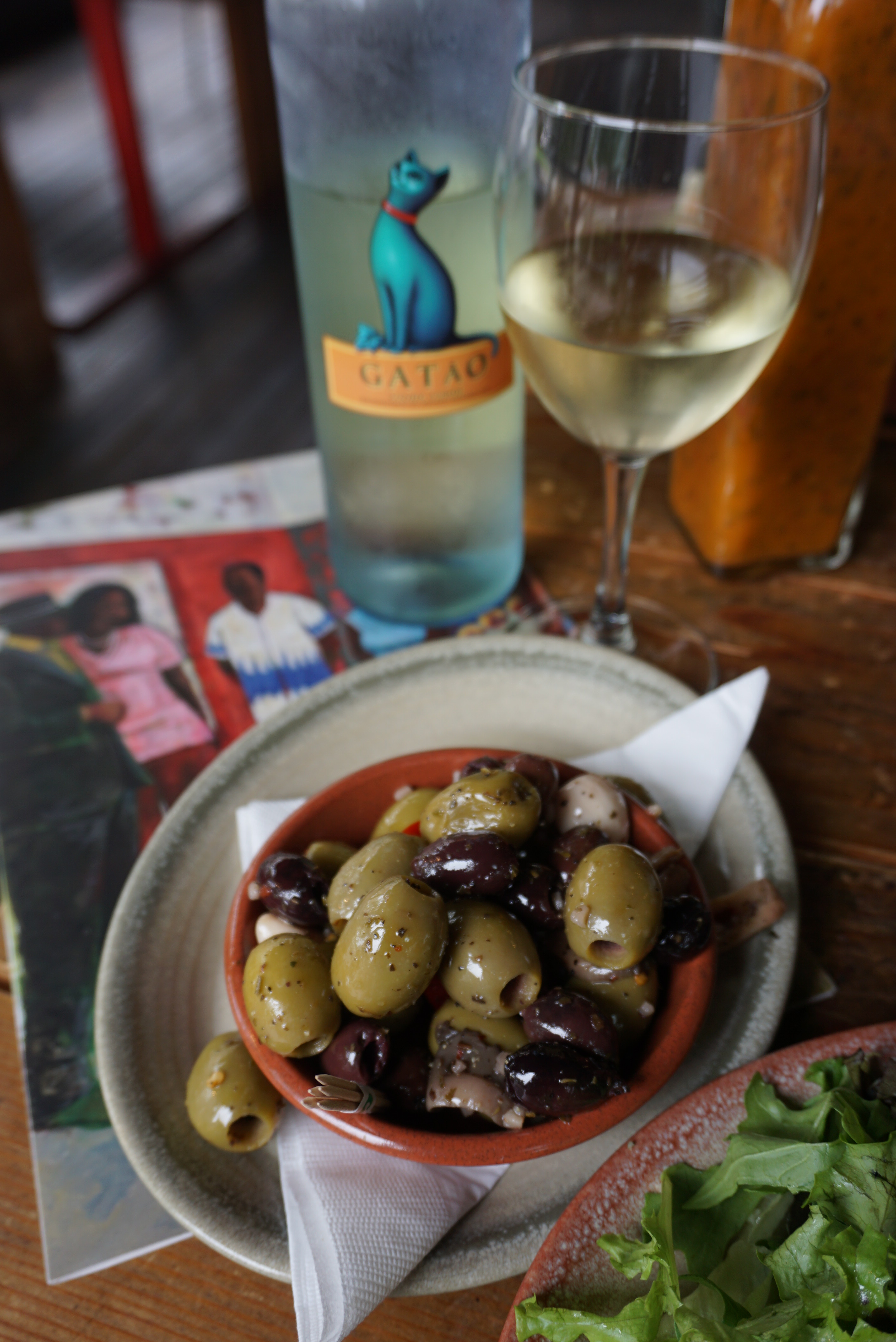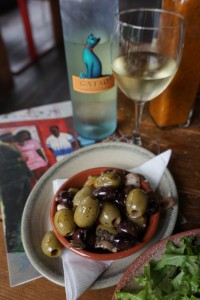Resolve to see wine as a fitness partner in 2017


Just as consuming olives and olive oil in moderation protect against certain cancers, reduce bad cholesterol and fight inflammation, drinking a glass of wine a day can boost the effects of a healthy lifestyle. Viki Eierdam
Topping the list of popular New Year’s resolution is always a combination of ‘eat better and lose weight.’ During the month of January it’s harder to find a spot at the gym; athletic gear is on sale; and people throw out junk food and left over holiday sweets by the garbage cans full in an effort to make a clean break from old habits.
The good news is that moderate wine drinking can actually boost the effects of a healthy lifestyle. Considerable research has been conducted to determine that wine, particularly red, may be a pleasant tonic for much of what ails you. A substance found in plants, resveratrol protects them from the damages of sun exposure, fungus and microorganisms. Higher levels of this substance are found in red wine due to fermentation in contact with skin but white wine has its own polyphenols. So, whether you prefer white or red, the health benefits continue to add up.
Cancer prevention: The effects of wine in the fight against colon, lung, prostate and breast cancer have all uncovered beneficial links. In fact, moderate wine consumption has been found to reduce the risk of prostate cancer by as much as 52 percent compared to non-wine drinking men. Unlike most alcoholic drinks—which increase breast cancer risk—red wine actually decreases the chances due to the chemicals found in the skin and seeds of the grape.
Anti-aging: Similar to the concept of blueberries, resveratrol in red wine promotes healthy blood vessels.
Omega-3 fatty acids: Similar to the benefits of incorporating fish into a healthy diet, wine consumption boosts levels of omega-3 fatty acids that protect against coronary heart disease.
Reduced risk of depression: Again, moderate drinking—no more than seven glasses of wine per week.
Battling dementia: Studies have shown as high as 23 percent lower risk in dementia onset.
Sun damage help: Just as in plants, polyphenols found in wine can protect human skin from sun damage and severe burning.
Eye health: By inhibiting excessive blood vessel growth, resveratrol in wine can dramatically decrease the risk of developing diabetic retinopathy and macular degeneration as a person ages.
Liver health: Contrary to popular opinion, limited wine consumption actually reduces the risk of liver disease by as much as 50 percent while all other forms of alcohol consumption increase it significantly. Note: This finding refers to non-alcoholic liver disease.
Stroke protection: In some research, resveratrol has been found to raise levels of brain-protecting enzymes thus lessening permanent damage from a stroke.
So, while you’re increasing your aerobic output, focusing on strength-training and being sure to balance everything out with a healthy dose of stretching, consider that wine can actually be a fitness partner. It doesn’t have to be curbed along with chips, pop and high-fat desserts. In fact, within recommended limits, it can pair quite nicely with leafy greens, low-fat cheeses, fresh fish and lean cuts of meat.
It’s important to note that all studies stressed that wine benefits are found in moderate alcohol intake. Moderate is defined as no more than two-5 ounce glasses of wine a day for men not to exceed 14 drinks a week and one-5 ounce glass for women up to a maximum of seven drinks per week.
**If you like what you’re reading, follow this Corks & Forks blog by clicking the ‘Follow’ button or follow Corks & Forks on Facebook, Twitter @WACorksandForks or Instagram Viki@WACorksandForks.
